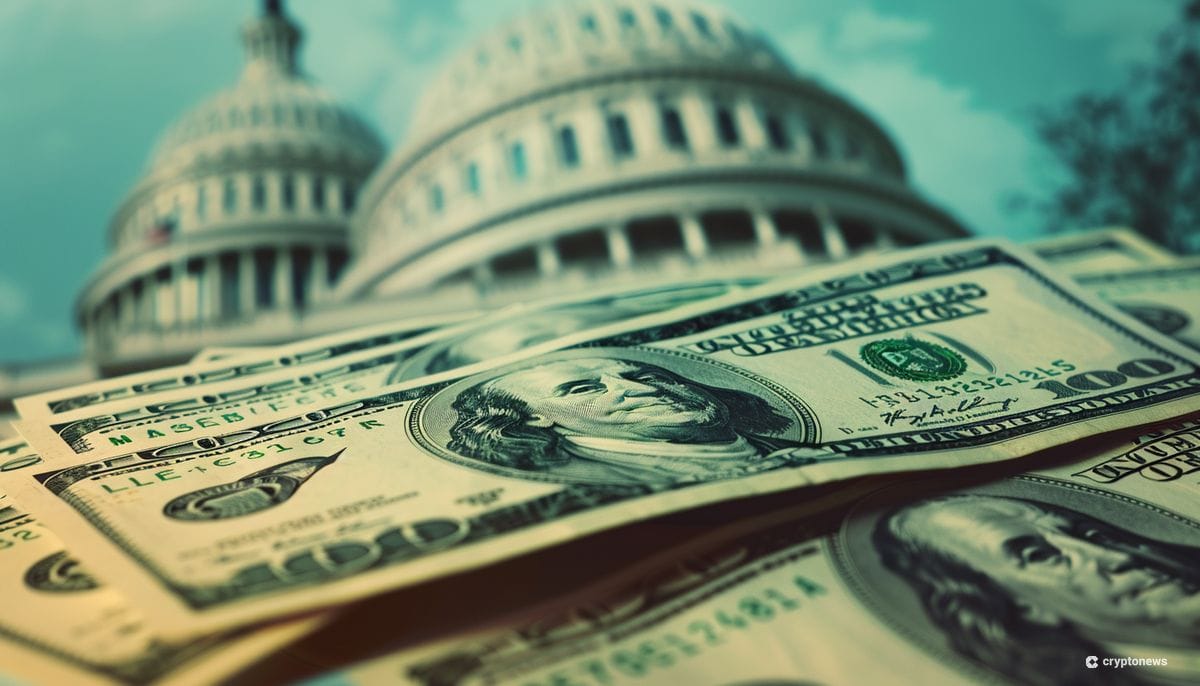
In a significant shift within the U.S. legislative parliament, Senator Roger Marshall, a Republican from Kansas, has withdrawn his support for the Digital Asset Anti-Money Laundering Act (DAAMLA), a bill he co-authored with Democratic Senator Elizabeth Warren.
Marshall’s decision, recorded on July 24, marks a major setback for the bill, which aims to tighten anti-money laundering (AML) rules for the cryptocurrency industry.
Marshall Withdrawal Set the Ground for Potential Drawback of the Bill
Marshall’s withdrawal leaves 18 senators still backing the DAAMLA, which was initially introduced in December 2022.
The bill seeks to impose rigorous AML and Know Your Customer (KYC) regulations on digital asset service providers, including miners, validators, and decentralized wallet providers.
Notably, DAAMLA intends to curb the use of cryptocurrencies for illicit activities by bringing the crypto sector under the purview of existing financial regulations like the Bank Secrecy Act.
Despite its intentions, the bill has faced significant opposition from the crypto industry, arguing that its provisions would stifle innovation and drive the industry overseas due to overregulation.
Senator Warren, a staunch critic of the crypto industry, argued that the bill was necessary to prevent cryptocurrencies from being exploited by bad actors.
Warren reintroduced the bill in July 2023 with backing from the Bank Policy Institute, representing major financial institutions like Bank of America and Citibank, which supported expanding AML frameworks to cover digital assets.
The Blockchain Association, representing U.S. crypto interests, expressed concerns that the bill would undermine the nation’s strategic advantage, threaten jobs, and have minimal impact on the illicit activities it targets.
In February, 80 former military and national security professionals and the Blockchain Association warned that the bill could hinder law enforcement and national security efforts by pushing the digital asset industry abroad.
1/ Today, we sent a new letter to Congress, supported by a doubled 80+ coalition of former military and national security professionals urging members to reconsider support for proposed legislation that could cripple the domestic digital assets industry.https://t.co/6bSarhpVP4 pic.twitter.com/uxIqyGp1AY
— Blockchain Association (@BlockchainAssn) February 13, 2024
They argued that it would inadvertently harm the U.S. economy and national security.
Crypto advocates have hailed Marshall’s withdrawal as a victory. Perianne Boring, CEO of the Digital Chamber of Commerce, called it a “massive victory” for the community, emphasizing the rarity of a senator withdrawing support for their bill.
🚨 HUGE NEWS! 🚨
After tremendous community pressure, Sen. @RogerMarshallMD has withdrawn his support for the Crypto Ban Bill S2669. This is a massive victory for our community! It’s incredibly rare for a senator to back away from their own bill.
We only have one more… https://t.co/eNuK1NEKkU
— Perianne (@PerianneDC) July 25, 2024
Senator Warren Still Backing the DAAMLA Act
Senator Warren, seeking her fourth term, continues to promote DAAMLA as part of her broader campaign to build an “anti-crypto army.”
Her stance contrasts sharply with that of former President Donald Trump, who recently adopted a pro-crypto position and received significant support from industry figures like Kraken founder Jesse Powell and the Winklevoss twins.
Trump’s stance reflects a broader shift within the Republican Party, which has incorporated pro-crypto policies into its platform for the 2024 elections.
This includes defending the right to mine Bitcoin, opposing Central Bank Digital Currencies (CBDCs), and promoting self-custody of digital assets.
Meanwhile, the Biden Administration’s approach to crypto regulation remains ambiguous. With Vice President Kamala Harris, who was endorsed by President Biden as the Democratic nominee for the coming election, the party’s future stance on crypto uncertain.
Notably, Warren recently urged stringent anti-money laundering measures against foreign-owned U.S.-based crypto mining operations, citing significant environmental and national security risks.
At a Senate Committee hearing, Warren highlighted the dangers posed by these mining facilities, which she noted are increasingly owned by foreign entities, mainly Chinese nationals.
She pointed out that such mines consume enormous amounts of electricity, potentially destabilizing the power grid, and that many countries have banned crypto mining, leading foreign companies to establish operations in the U.S. Therefore, calling for stronger AML protections to address these vulnerabilities.
Her “hatred” towards crypto has made her disliked by the community, even making Gemini’s co-founders Tyler and Cameron Winklevoss donate $500,000 each in Bitcoin to “unseat” her as a US Senator and “put an end to” her war on crypto.
They have donated $1 million to John Deaton, a crypto advocate and senate candidate. The twins called Deaton a “pro-Bitcoin, pro-crypto, and pro-business candidate.’

















